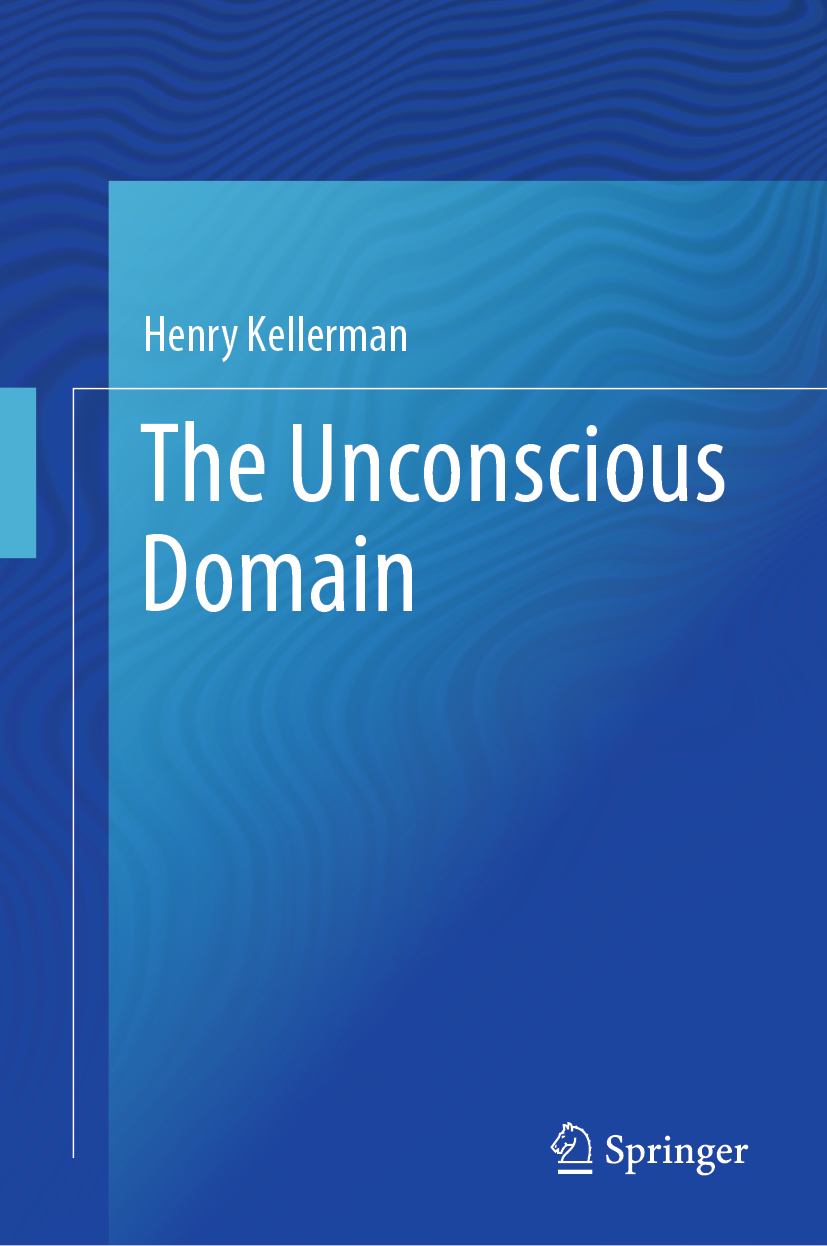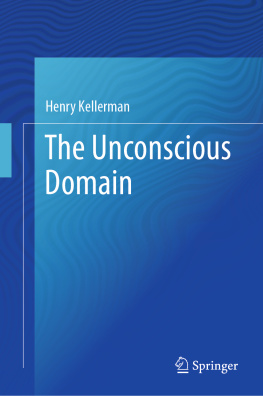Henry Kellerman - The Unconscious Domain
Here you can read online Henry Kellerman - The Unconscious Domain full text of the book (entire story) in english for free. Download pdf and epub, get meaning, cover and reviews about this ebook. year: 2020, publisher: Springer International Publishing, genre: Computer. Description of the work, (preface) as well as reviews are available. Best literature library LitArk.com created for fans of good reading and offers a wide selection of genres:
Romance novel
Science fiction
Adventure
Detective
Science
History
Home and family
Prose
Art
Politics
Computer
Non-fiction
Religion
Business
Children
Humor
Choose a favorite category and find really read worthwhile books. Enjoy immersion in the world of imagination, feel the emotions of the characters or learn something new for yourself, make an fascinating discovery.
- Book:The Unconscious Domain
- Author:
- Publisher:Springer International Publishing
- Genre:
- Year:2020
- Rating:5 / 5
- Favourites:Add to favourites
- Your mark:
- 100
- 1
- 2
- 3
- 4
- 5
The Unconscious Domain: summary, description and annotation
We offer to read an annotation, description, summary or preface (depends on what the author of the book "The Unconscious Domain" wrote himself). If you haven't found the necessary information about the book — write in the comments, we will try to find it.
The Unconscious Domain — read online for free the complete book (whole text) full work
Below is the text of the book, divided by pages. System saving the place of the last page read, allows you to conveniently read the book "The Unconscious Domain" online for free, without having to search again every time where you left off. Put a bookmark, and you can go to the page where you finished reading at any time.
Font size:
Interval:
Bookmark:


This Springer imprint is published by the registered company Springer Nature Switzerland AG
The registered company address is: Gewerbestrasse 11, 6330 Cham, Switzerland
To
Ms. Sharon Panulla,Executive Editor, Springer Science
Ms. Carole Stuart,Former Publisher, Barricade Books
Mr. Evander Lomke,President, American Mental Health Foundation, Executive Editor, American Mental Health Foundation Books
Dr. Inna Rozentsvit, M.D., Ph.D.Editor-in-Chief, ORI/Academic Press
The title of this book,The Unconscious Domain, refers to the unconscious mental system as a realm, that is, as a field of influence. The noun domain is derived from the Latin word dominus meaning master. And this is precisely what is meant here by separating the unconscious from all other metapsychological connectionsincluding the Freudian preconscious and conscious realms. Yet, the connection between the unconscious field of influence to the formulation of preconscious and conscious realms will herein also be considered.
In addition, the title of this book is actually meant to focus on the unconscious realm as a complete and absolute systemmeaning a system composed of several components as well as containing a communicational network. It is the intention here to enumerate the components of this unconscious realm (or domain) and to uncover the proposed communicational network in its operationa communicational network that is able to link the inherent participating components of this realm. Therefore, this putative communicational network is also considered here as subject to an analysis of that which constitutes such a networkthat is to say, to see how it all works within this domain, especially with respect to its components.
A domain also contains a function that provides an output or value for each constituent of the domain. This output value is referred to as a range. Therefore, the unconscious domain is also seen as a realm that has a range; that is, a beginning, all the way to an end pointan end point that may also be considered a trajectory toward an objective and not necessarily solely defined as an end point as in a solid end-barrier. Further, the function of such a domain also contains input values upon which the entire domain can be defined. In other words, the aggregate of components of a domain defines the domainalong with the idea that as such an aggregate of components combine, the result can be different than solely the simple additional value or simple sum of such an aggregate.
In this sense and in this volume, the unfolding of analyses and discussion of the unconscious domain is seen as containingprimary constituentsorissuesregarding such variables. These top-tier constituents or variables are identified as the core variables that can be considered as involved in the genesis of it allthat is, in the gradual evolutionary formation of an unconscious arena.
The emotion/evolutionary consideration of survival is a Darwinian focus on survival, and the emotion system in evolution is ultimately designed to protect organisms from a given predator/prey existence. This predator/prey existence is finely characterized in the world as a true characteristic of the worldand by definition as dangerous to ones survival;
Understanding of the ubiquitous pleasure principle relevant to all organismsas even applied to the gratification need of simple single-celled organisms;
The critical issue of the inimitablebasic-wishin a persons overall mentationas a function of the operation of the psyche; and
The organization of the psyche itselfconsidered here as the engineering room of the unconscious.
The overdetermined phenomenon of acting-out which can touch virtually all concepts in the unconscious dynamic involving the organization of personalitythereby also revealing a psychological understanding of personality;
The formation of emotional/psychological symptoms;
The issue ofinstinct;
The communicational sequence within the unconscious with a focus on its basic definitional algorithm (the message of the persons basic-wish); and
Thespandrelianeffect of all such interactions (and phenomena) within this unconscious realmalso with the spandrelian effect along with the entire range of the unconscious. Thespandreloperates in a profound logical and simple manner insofar as it is an unintended consequence of other primary conditions. This means that the basic mechanism enabling the unconscious to communicate with consciousness needs to be identified.
Assuming that such a reciprocal communicational language exists between the unconscious and consciousness, then the questions become: What precisely is this language between the unconscious and consciousness, and, exactly how is such language communicated?
Font size:
Interval:
Bookmark:
Similar books «The Unconscious Domain»
Look at similar books to The Unconscious Domain. We have selected literature similar in name and meaning in the hope of providing readers with more options to find new, interesting, not yet read works.
Discussion, reviews of the book The Unconscious Domain and just readers' own opinions. Leave your comments, write what you think about the work, its meaning or the main characters. Specify what exactly you liked and what you didn't like, and why you think so.











